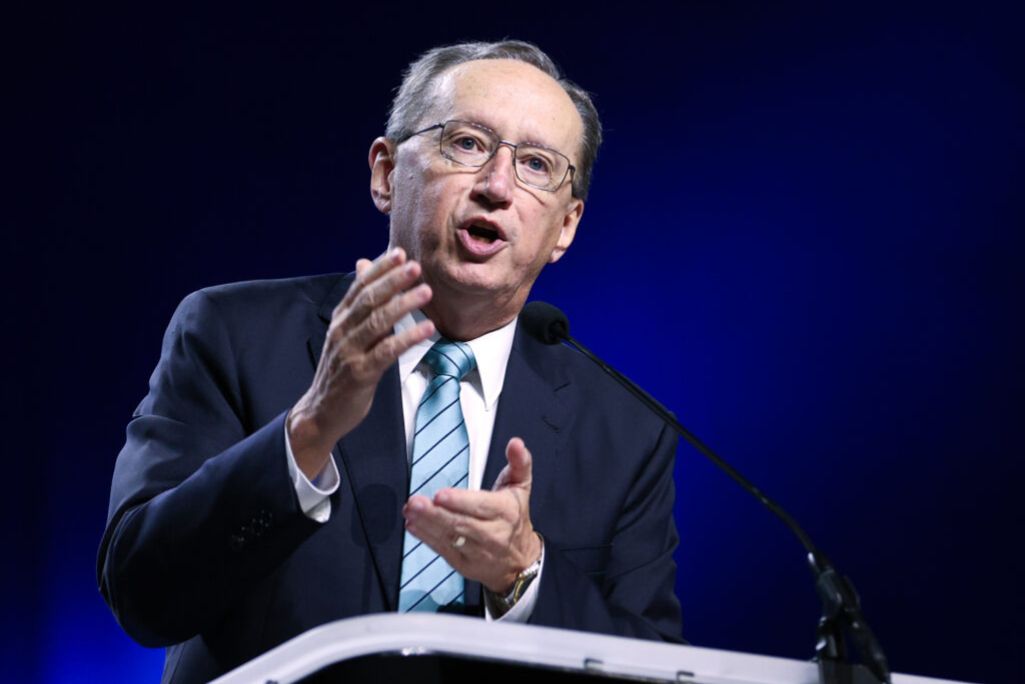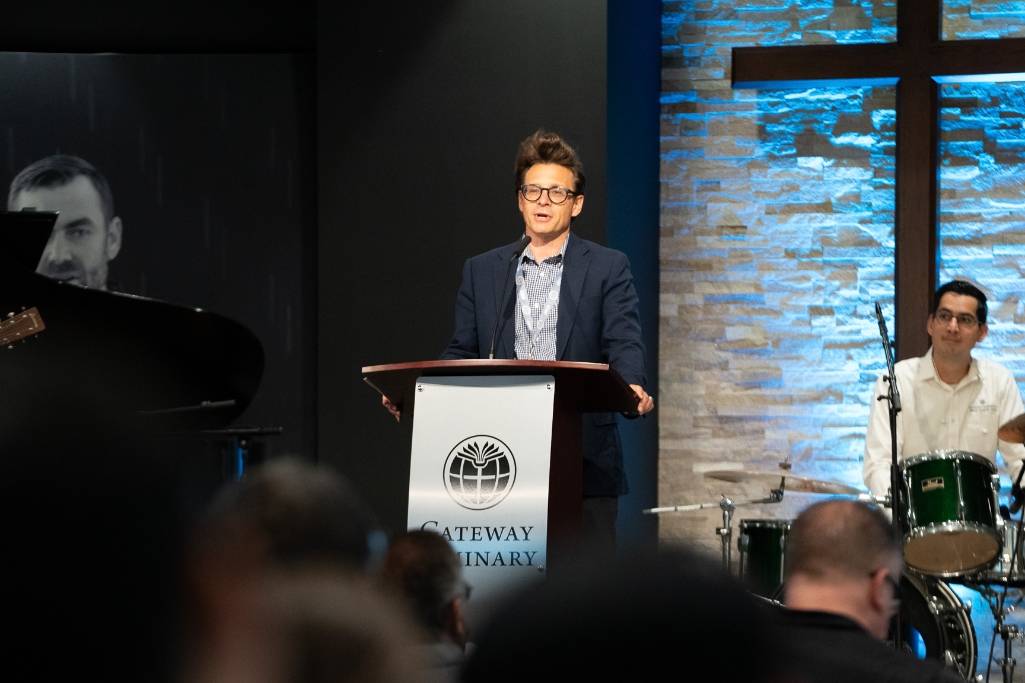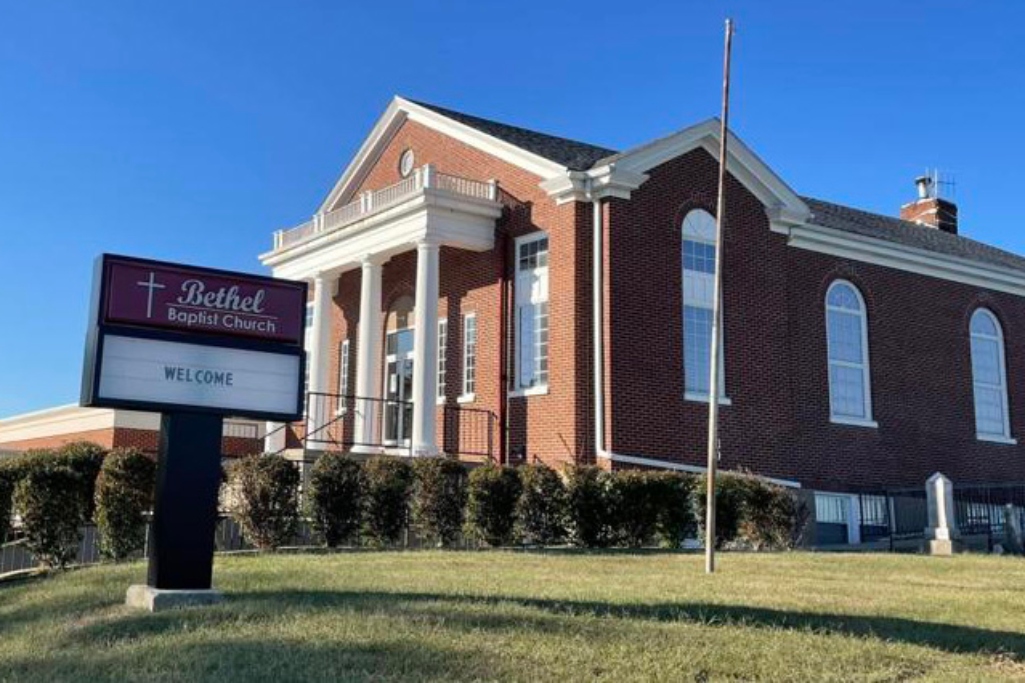
Jeff Iorg, president of the SBC Executive Committee, addressed several issues in his EC report to messengers at the 2025 SBC annual meeting on June 10.
DALLAS (BP) — In 1925, Southern Baptists faced a “percolating maelstrom of denominational uncertainty,” Executive Committee (EC) President Jeff Iorg said in his EC report to messengers to the 2025 Southern Baptist Convention (SBC) annual meeting June 10. And in a time when solutions were needed, “courageous leaders redefined cooperation.”
Concerns abounded with the nation’s economy — despite it being the Roaring ‘20s — due to government decisions that ultimately produced the Great Depression. Financial scandals within the SBC had sapped the convention of losses in the millions of dollars today. Theological disputes among pastors played out in newspapers and over the radio.
Out of that came the Baptist Faith and Message, but also the Cooperative Program.
That step, said Iorg, “depended on cooperation, not coercion. It was voluntary, not in response to appeals. It was based on serving others, requiring leaders to promote common success rather than individual recognition.
“And friends, it put every one of us on the same team, all sharing a common financial funding source so that every boat would rise to the top.”
Iorg’s message addressed several issues also covered in the previous day’s Executive Committee meeting. Those included ongoing steps toward sexual abuse prevention and response, litigation and budget issues, and the SBC’s Business and Financial Plan.
Improving trustee system
In speaking on the proposed revised Business and Financial Plan messengers will vote on June 11, Iorg directly addressed concerns over “trusting the trustees.”
Southern Baptists’ usage of the trustee system was born out of its constitution and bylaws at its founding in 1845, he reminded attendees. “Having said that, it is also my belief the trustee system can and should be improved,” Iorg said.
Three initiatives in development are being set to do that:
- A group of state executive directors is working on recommendations about trustee representation issues.
- The Great Commission Council (entity presidents and Woman’s Missionary Union executive director) will work with Iorg later this year on requests and suggestions regarding the trustee process for the Committee on Nominations.
- An SBC trustee training course will be implemented in the 2026 trustee selection cycle, starting in January.
“Southern Baptists, while we have a proven, time-tested governance system, it can be strengthened. We are working toward that goal and will report the results to you in future years as we continue to sharpen the governance process,” Iorg said.
Current and future steps toward abuse prevention, response
Perspective, said Iorg, is important to maintain in looking at the SBC’s current position alongside future goals.
“It’s easy to fixate on one doctrinal position, one financial number, one procedural question or one leadership mistake and miss the insight possible from a broader perspective,” he said.
Last year, messengers assigned the Executive Committee responsibility for giving sexual abuse prevention and response an ongoing home among Southern Baptists. That led to Iorg’s hiring of Jeff Dalrymple, who joined the Executive Committee earlier this year. Dalrymple and Iorg have maintained weekly meetings since then to implement strategies such as revisions to the Essentials Curriculum, improvements to sbcabuseprevention.com and building greater inroads to training state convention leaders.
“We are now making a proportional, substantive response based on the facts in hand, not anecdotal narratives or speculative reports,” Iorg said. “We are implementing reasonable and purposeful solutions to help churches, SBC entities and denominational partners address this important issue.”
Future improvements include translating Essentials into multiple languages, hosting a summit with state and national leaders about sexual abuse prevention and promoting abuse training and prevention at all SBC seminaries.
Litigation and budget issues
Iorg clarified the two types of litigation the Executive Committee has addressed in recent years to the tune of approximately $13 million.
The first includes the since-concluded Department of Justice investigation and three defamation lawsuits involving former SBC President Johnny Hunt, former Southern Seminary professor David Sills and former Tennessee minister Preston Garner. The second category are lawsuits that involve churches and likely will name the local association, state or regional convention, the SBC and the Executive Committee.
The former cases are working their way through the legal system, but the latter category are “likely (to) continue indefinitely,” said Iorg.
“As long as there are legal issues in the churches, there will be misplaced lawsuits naming denominational entities. And remember, in all these cases, we are defendants, not the initiators of these legal actions,” he added.
“The good news, and it is good news, is we are making steady, incremental progress at resolving them,” Iorg said. “The bad news is the cost of completing the task is unpredictable.”
That makes the $3 million priority allocation for future legal expenses necessary, if frustrating, he added.
“No mission-centered Southern Baptist wants to make this recommendation,” Iorg said. “I don’t want it, you don’t want it, none of us do. In an attempt to avoid this, we have exhausted the Executive Committee’s reserves, cut Executive Committee staff from 36 to 21, reduced Executive Committee programs, borrowed $3 million and are attempting to sell the SBC building in Nashville. We have also considered multiple other possibilities, which ultimately proved more problematic than even the current recommendation.”
A force for (cooperative) good
Iorg urged messengers to approve the proposed Business and Financial Plan without amendments, yet with the understanding that changes can be made in the future.
“My conviction … about trustee governance rests on my perspective from 30 years of board leadership and relationships, including teaching organizational leadership at the doctoral level,” he said.
The history of all Southern Baptist entities includes some 1,300 collective years of trustee boards. A sum total of 50 years of bad leadership in that time would still bring a 96% effective rate. Increase the number to 100 years, and the figure remains at 92%.
“That’s a solid track record of success, which has built powerhouse denominational entities,” he said.
Iorg peppered his message with the motto he has shared in speaking with groups and churches nationwide over the last year — “Southern Baptists are a force for good.”
“During this past century, no denomination or other church group — and friends, it’s not even close — has experienced what God has done through Southern Baptists,” said Iorg. That includes starting and strengthening churches; building universities, hospitals and children’s homes; providing ministries to children and teenagers; and creating “a world-class disaster response network,” among other things.
“Cooperation and the Cooperative Program are not bygone relics of a dying era,” said Iorg. “… We stand today in awe of what God has done through Southern Baptists. We stand in awe of what God has done for a people to choose cooperation.
“… Southern Baptists, by this means, cooperation, and by its expression, the Cooperative Program, and by God’s amazing grace extended through us, may Southern Baptists remain a force for good.”
(EDITOR’S NOTE — Scott Barkley is chief national correspondent for Baptist Press.)


